Steven Gerrard

Steven Gerrard

Steven Gerrard
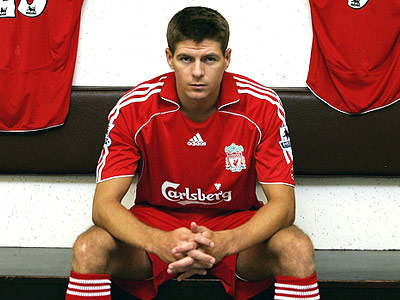
Steven Gerrard
Steven Gerrard
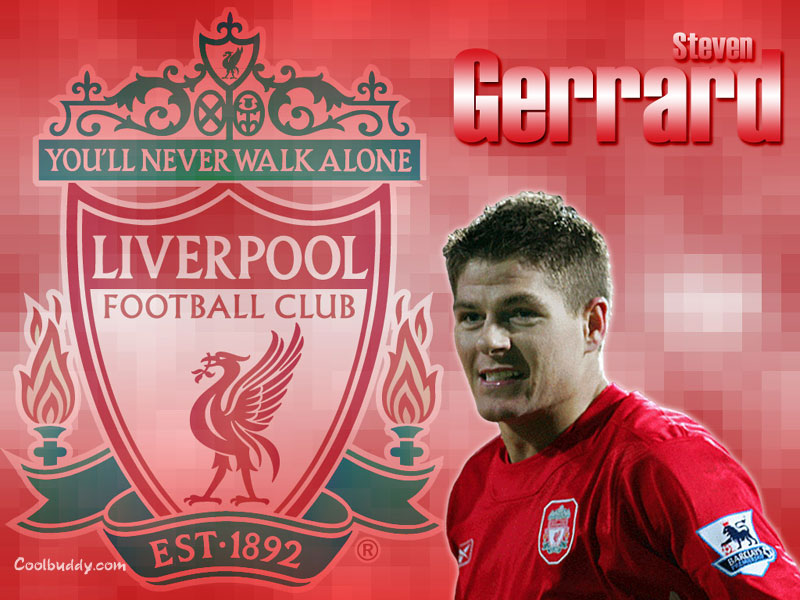
Steven Gerrard

Steven Gerrard

Steven Gerrard
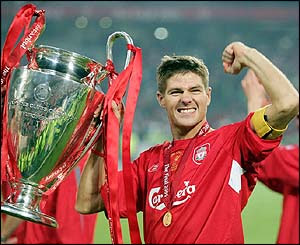
Steven Gerrard
Steven Gerrard
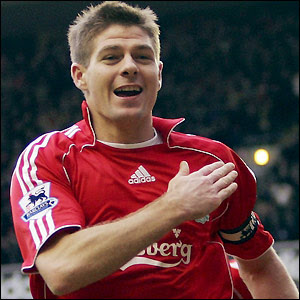
Steven Gerrard

Steven Gerrard

Steven Gerrard

Steven Gerrard

Steven Gerrard

Steven Gerrard
Steven Gerrard

Steven Gerrard

Steven Gerrard

Steven Gerrard

Steven Gerrard

Steven Gerrard

Steven Gerrard
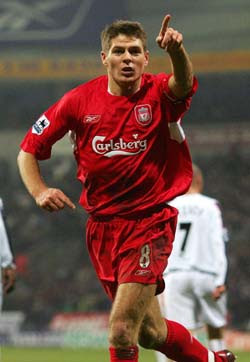
Steven Gerrard

Steven Gerrard
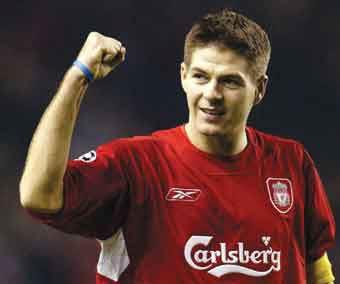
Steven Gerrard

Steven Gerrard

Steven Gerrard

Steven Gerrard
Steven Gerrard
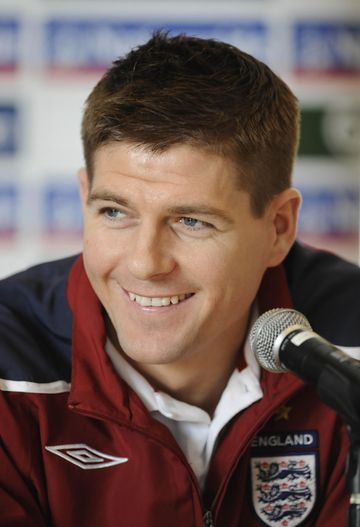
Steven Gerrard

Steven Gerrard
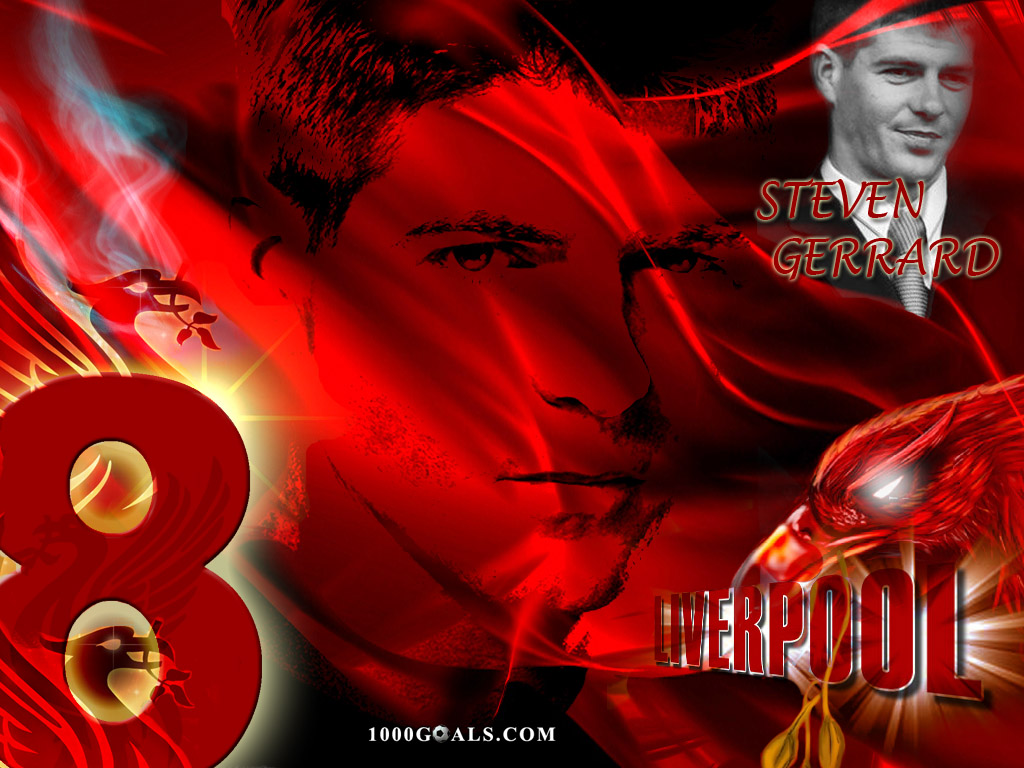
Steven Gerrard

Steven Gerrard
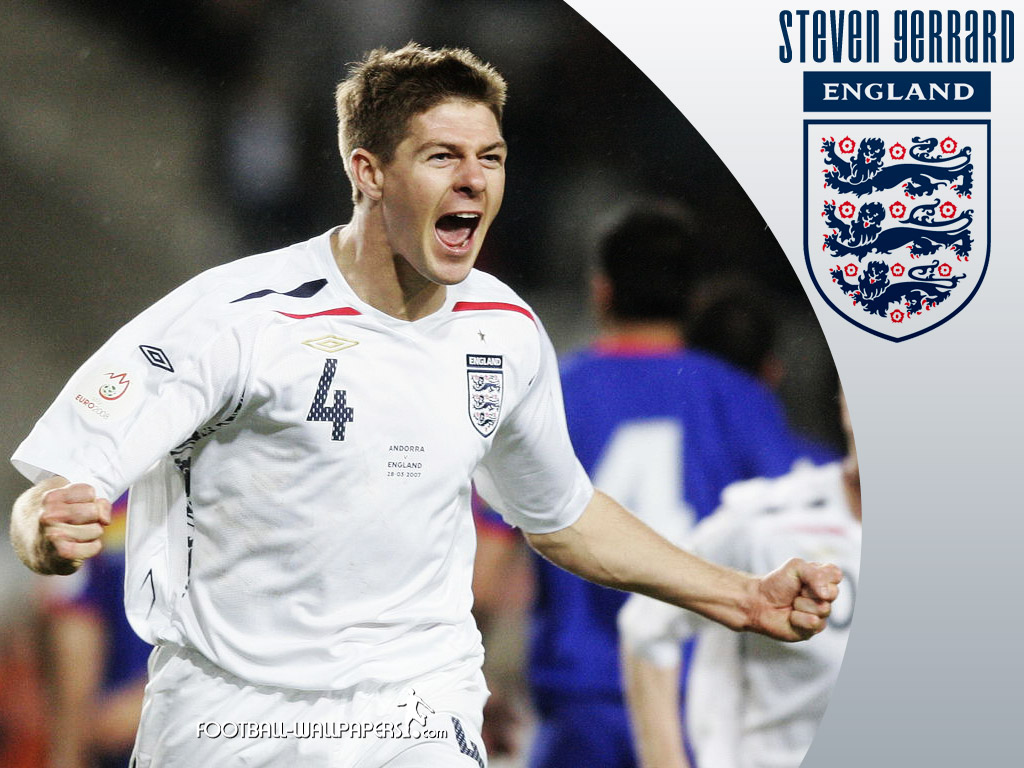
Steven Gerrard

Steven Gerrard

Once in a generation a player comes along to whom nothing seems impossible. Luckily, that man wears the No.8 shirt at Anfield...
Our inspirational captain is one of the most complete footballers in the world. Power, pace, touch and a never-say-die attitude; Stevie G has it all, and rarely have these attributes been more apparent than when he skippered the Reds to 2005 Champions League glory in Istanbul.
The midfielder has collected almost every club medal during 13 years in the first team and in 2006 was awarded an MBE by the Queen. The one piece of silverware that eludes him is the Premier League title.
Gerrard's LFC love affair began when he was spotted playing for Whiston Juniors aged nine. Eight years later, after a period as a trainee, he signed his first professional contract.
Within 12 months the starlet made his first-team debut, coming on as a second-half sub for Vegard Heggem against Blackburn Rovers on November 29, 1998. Gerrard played 13 games in his debut season, in part due to the injury woes of fellow midfielder Jamie Redknapp.
Persistent back and groin problems punctuated his blossoming career, though he'd managed to establish himself as a regular by the start of the 1999-00 season.
It proved to be a momentous campaign for the Whiston-born youngster, not least because of a spectacular first professional goal at Anfield against Sheffield Wednesday. England coach Kevin Keegan was starting to take note.
Having already featured at U18 and U21 level, Gerrard was handed his first senior international cap against Ukraine in May 2000. From there he was selected for Euro 2000 in Holland and Belgium, but had to settle for just a single substitute appearance.
By now regarded as the complete box-to-box midfielder, he was instrumental in the Reds winning a unique treble in 2001. With the Worthington and FA Cups already in the cabinet, Gerrard was one of the scorers in an unforgettable 5-4 UEFA Cup final triumph over Alaves. It came as no surprise when the man nicknamed the Huyton Hammer was voted PFA Young Player of the Year.
The picturebook moments just kept coming and Gerrard kicked off the following season by netting his first international goal in the famous 5-1 trouncing of Germany in their own backyard. The win helped Sven's men secure a World Cup place, but heartache would ensue when a groin injury ruled the midfield maestro out of Japan and South Korea.
A mixed domestic season followed, the highlight of which was a Worthington Cup final at Cardiff's Millennium Stadium. Gerrard opened the scoring in a satisfying 2-0 win over Manchester United.
By the start of 2003-04 the No.8 had firmly established himself as Liverpool's on-field leader, and it was no surprise when Gerard Houllier handed him the captain's armband in place of Sami Hyypia.
The decision proved such a success that within six months Gerrard was captaining England against Sweden in the absence of David Beckham.
Just when it seemed things couldn't get any better for the Scouser, he enjoyed the greatest night of his sporting career. On May 25, 2005, under new boss Rafael Benitez, Gerrard lifted the club's fifth European Cup.
Having already brought Liverpool back from the brink earlier in the campaign with a superlative strike against Olympiacos, the skipper helped inspire the greatest comeback of all time in Istanbul.
No one believed the Reds could overturn AC Milan's 3-0 half-time lead - until Stevie G's 54th minute header, that is.
His heroics earned him the title of UEFA's Most Valuable Player, as well as a nomination for the prestigious Ballon D'Or award. He would come third in the latter, behind Ronaldinho and countryman Frank Lampard.
In the months that followed the final, captain fantastic signed a new four-year contract at Anfield to put an end to speculation about a possible move to Chelsea.
With his future sorted, Gerrard went on to enjoy his most impressive season to date, scoring 23 goals in 53 games and being crowned PFA Player of the Year. He was the first Liverpool man to win the award since John Barnes in 1988.
The 2005-06 campaign culminated with another FA Cup win in Cardiff, with West Ham providing the opposition. If 1953 will always be remembered as the Stanley Matthews final, then 2006 will surely go down as Gerrard's day.
The midfielder twice breached Shaka Hislop's net, including a dramatic equaliser in the dying moments to send the game into extra-time and, ultimately, penalties. This 35-yard volley was voted Match of the Day's Goal of the Season.
Gerrard - who's played in just about every position for Liverpool - had now scored in four major finals, something no English-based player had ever done.
Next, in the summer of 2006 and aged 26, the Scouse sensation featured in his first World Cup. After scoring twice in the group stages, he was one of three players to miss a penalty in the quarter-final shoot-out loss to Portugal.
In the wake of defeat and Beckham standing down, Gerrard was widely tipped to be the next England skipper. New boss Steve McClaren eventually plumped for Chelsea centre-back John Terry, with the Liverpool man having to settle for the vice-captaincy.
The Kop idol returned from Germany for another eventful domestic season during which he broke Ian Rush's European Cup goalscoring record. His header against PSV was his 15th in the competition, one more than the legendary striker.
In December 2006 Gerrard was awarded an MBE, which he later collected from the Queen at Buckingham Palace.
As if all this wasn't enough, the season culminated with another European Cup final, and again it was AC Milan. This time, however, the night ended in heartbreak following a 2-1 loss.
Back on the international front, there was despair in November 2007 when he skippered his countrymen to a 3-2 defeat against Croatia at the new Wembley - ending both England's hopes of qualifying for Euro 2008 and McClaren's reign at manager.
The domestic season also finished without silverware despite a 21-goal haul for Gerrard, who formed an irrepressible partnership with new record signing Fernando Torres.
Now a bona fide legend of the British game, the midfielder made it a century of club goals with a powerful free-kick against PSV in October 2008. In doing so, he joined an elite band of 16 Anfield legends to achieve the feat.
The strike was one of 24 for Gerrard during 2008-09, a personal record which earned him Football Writers' Player of the Year for the first time. Sadly, his haul wasn't enough to secure an elusive Premier League winners' medal, though Liverpool mounted their best challenge since 1990 before United crossed the line on the penultimate weekend.
All this persuaded the pride of Merseyside to once again commit his future by agreeing a two-year extension tying him to Anfield until the age of 33.
A disappointing term followed, though Gerrard still plundered 12 goals as Liverpool finished seventh. He also made his 500th LFC appearance at Ewood Park on December 12, 2009.
Internationally, our maturing leader again missed out on the England captaincy despite Terry being stripped of the armband due to personal indiscretions. However, an injury to Fabio Capello's choice Rio Ferdinand meant it was Gerrard who led England in South Africa 2010, scoring in the opener against USA before a 4-1 last 16 exit to Germany.
He returned to Merseyside to find the landscape much altered: Rafael Benitez had gone, replaced for the time being at least by Roy Hodgson, and over the coming months the ownership of Liverpool Football Club would change following a courtroom battle between duo Tom Hicks and George Gillett and newcomers NESV.
Injuries meant Gerrard was often helpless to aid the club on the pitch during 2010-11 as the Hodgson revolution went awry, though his ability to turn in Roy of the Rovers performances was still evident with a brace at Old Trafford and a second-half hat-trick against Napoli after he was initially rested.
Still, the team entered 2011 in a worrying state - and new owners John Henry and Tom Werner decided to install the only man with a claim against Gerrard for the title of Liverpool's greatest ever player: Kenny Dalglish.
Off the pitch, our star man established the Steven Gerrard Foundation in 2011 with the aim of supporting children's charities in Merseyside and beyond.
You have read this articleG /
S
with the title Steven Gerrard. You can bookmark this page URL https://footballplayernames.blogspot.com/2011/10/steven-gerrard.html. Thanks!
Write by:
Oz-En -










Comments "Steven Gerrard"
Post a Comment